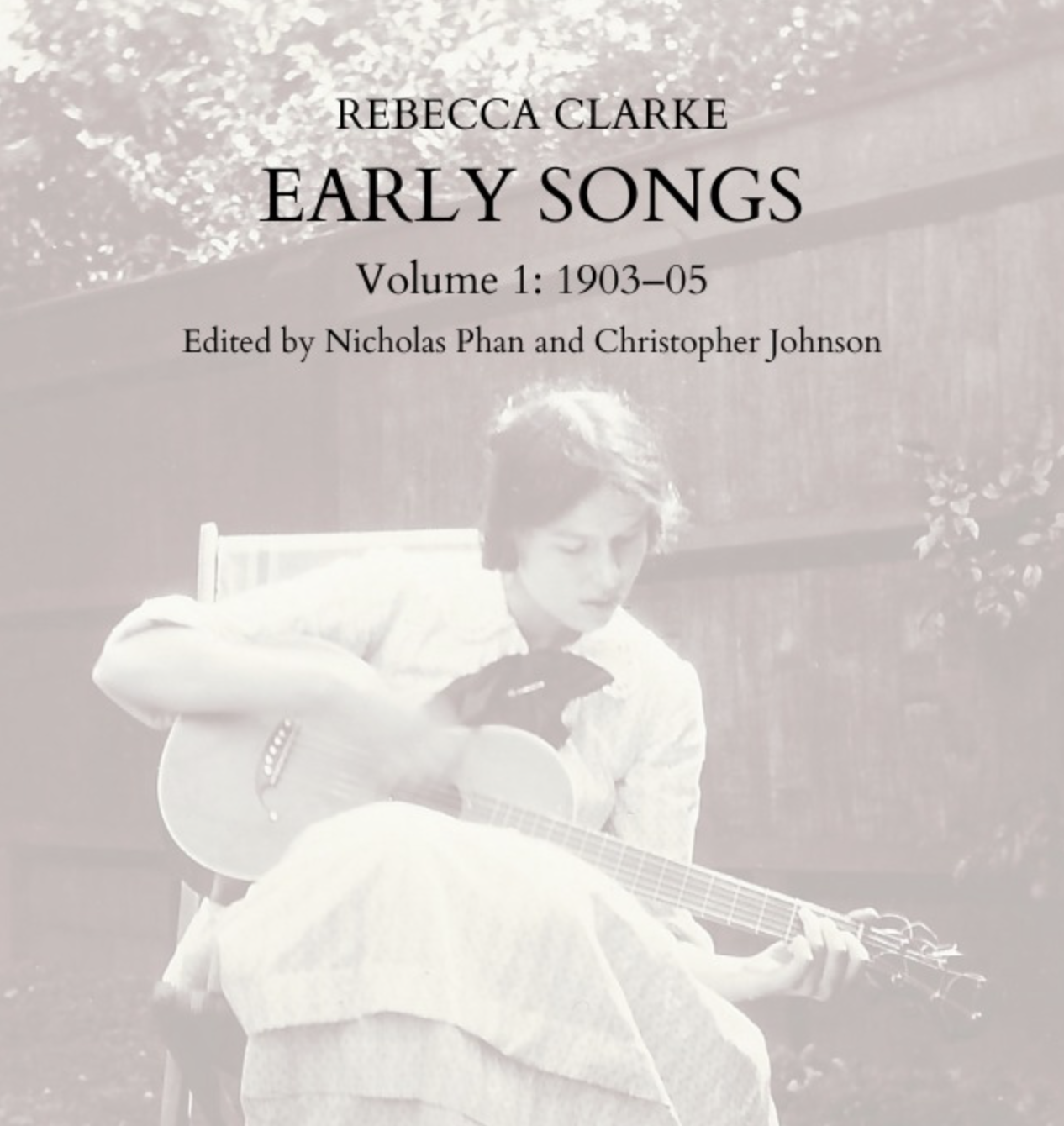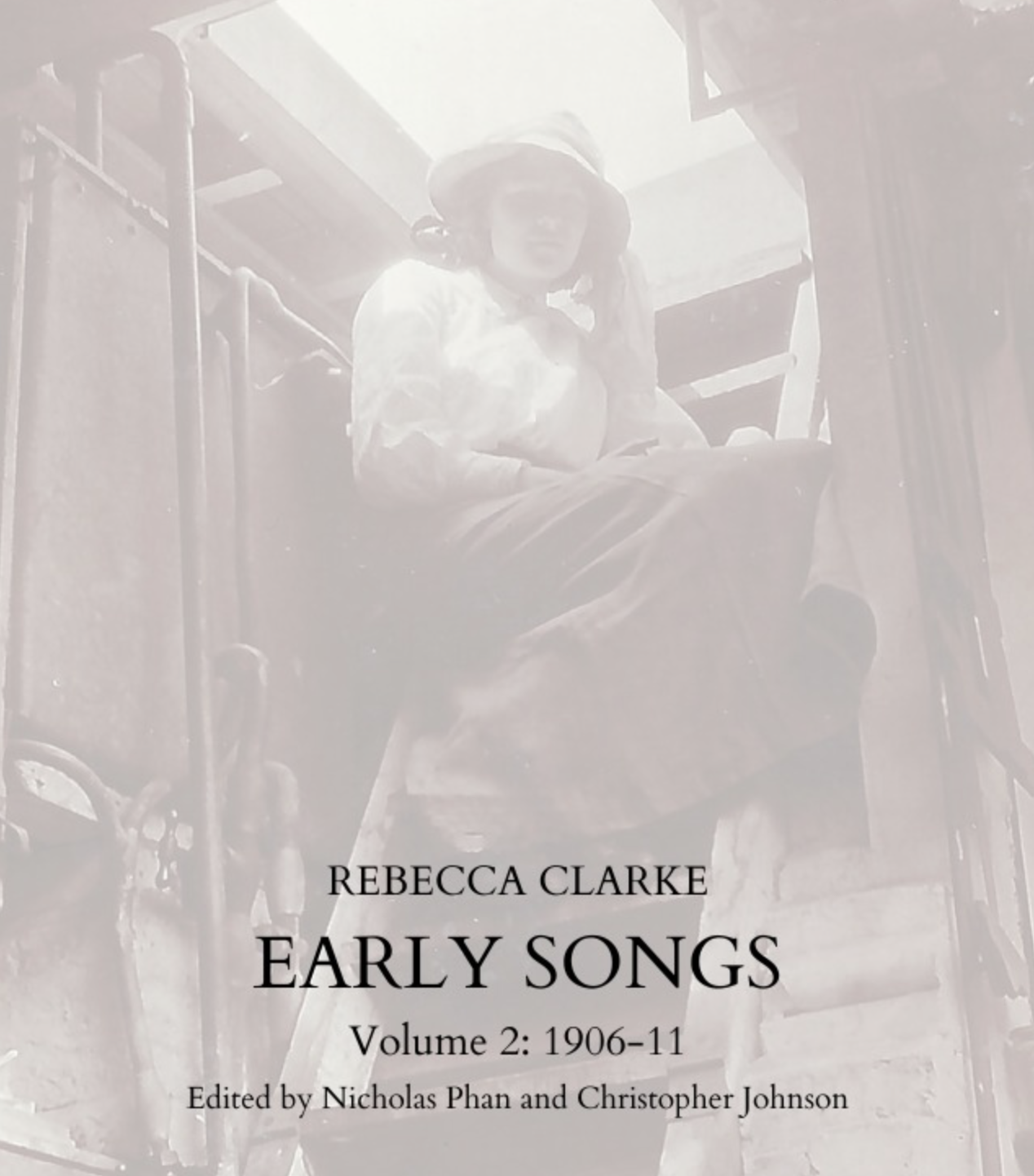A CASE FOR COMPLETE WORKS
I’m thrilled to share that five volumes of new editions of Rebecca Clarke’s early songs are now available from ClarNan Editions. I had the privilege of co-editing these scores with Christopher Johnson—Clarke’s great-nephew by marriage—who worked closely with her in cataloguing her works toward the end of her life and has devoted much of his own life to championing her music.
These volumes bring together songs from Clarke’s early period, ranging from her very first compositions written before she formally studied composition to her earliest professional works. Two of the volumes also include exquisite vocal duets. For most of these pieces, this marks their very first publication, and with this release, Clarke’s complete vocal works are now finally available for performance and study.
I hope you will explore these scores—they contain a wealth of beautiful songs, ideally suited for singers and pianists at every level.
My introductory editorial note to these editions is reposted below:
Of any composer, one might reasonably ask: why study their early works? It’s a valid question—even for so-called “canon” figures like Beethoven, Mozart, Brahms, or Johann Sebastian Bach. After all, juvenilia often carry the assumption of immaturity: clumsy gestures, awkward harmonies, and the inevitable mistakes that artists must make on their path to mastery.
Yet it is precisely through exhaustive study of their earliest efforts that we have come to understand these composers’ musical languages so deeply that their works—early, middle, and late—are now regarded as pillars of the classical canon. This familiarity makes their music highly sight-readable for musicians and readily accessible to listeners, shaping our collective sense of their style and tendencies.
Rebecca Clarke herself, as my editorial colleague Christopher Johnson has often noted, was dismissive of the idea that her early works warranted study. “I’m not Beethoven,” she would reportedly scoff. But perhaps that is precisely why we must examine her early works more closely. For composers who have not yet received their due—and who have been historically marginalized for any number of reasons—such study is essential. Without it, how else can we understand their syntax, their voice, and their place in the broader musical landscape?
Clarke’s hesitation—“I’m not Beethoven”—reflects a familiar artistic humility, perhaps even insecurity. It’s understandable: every artist wants to present only their best. But for those advocating Clarke’s music today, this instinct must be weighed against a broader truth—the reputations of canonical composers have never suffered from the inclusion of lesser works at any stage of their careers. Beethoven, Mozart, and Brahms all wrote mediocre pieces at various points, yet their legacies remain intact. In contrast, the works of overlooked composers are often held to a harsher double standard, where every piece is expected to prove its worth.
Clarke’s early songs reveal that she had many strong “first steps” throughout her compositional life. They already exhibit vivid imagination, literary curiosity, and a deep sensitivity to language that point clearly to Clarke’s full voice heard in later masterpieces like The Seal Man or The Cloths of Heaven. They are musically sophisticated, clearly crafted for performers, and rich with expressive potential. Much like Bach—whose greatness lies in the remarkable consistency of his vast output—Clarke’s songs, subjective as taste may be, rarely (if ever) miss the mark. This early chapter in her oeuvre affirms her place among the great art song composers of the 20th century.
As a performer who works to champion the music of lesser-known composers, I frequently encounter the twin obstacles of subjectivity and impatience. In the classical world, opinion is too often mistaken for fact, and snap judgments—especially of unfamiliar repertoire—are made without the curiosity or care to understand the composer’s intentions or context. Too often, a piece is dismissed after a first read or listen, not because it lacks value, but because it wasn’t given the time and thought required to reveal its strengths.
For the patient and inquisitive musician, Clarke’s early songs offer rich rewards. Studying and performing these works not only provides insight into her compositional voice, but also empowers performers to bring not just these, but all of her songs to life with nuance and conviction—essential qualities when presenting music that remains “new” to most audiences. For young singers and pianists, these songs serve as valuable training grounds for exploring text setting and interpretation across multiple languages. For seasoned recitalists, they offer vibrant additions to both the German Lieder and English song repertoires, enriching any program with depth and variety.
The duets in these editions are particularly valuable additions to the vocal chamber music repertoire, which remains too often overlooked by both singers and presenters alike. These works offer audiences the all-too-rare opportunity to hear individual voices interweave in an intimate chamber context, while also providing singers with rewarding opportunities to develop essential ensemble skills—crafted by one of the most expert chamber musicians of the 20th century.
I am deeply grateful to Christopher Johnson for bringing these early works to light through this publication. They are a vital contribution to the classical song canon, and the world of vocal music is stronger for their inclusion.

